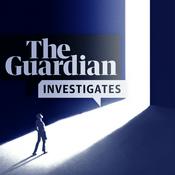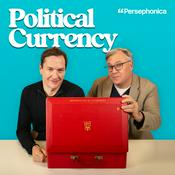411 episodes
- Guest: Dr. Younes Alila, University of British Columbia
Floods are some of the most devastating natural disasters on Earth—washing away homes, reshaping landscapes, and testing the limits of our infrastructure. But what if the way we measure and plan for floods is decades out of date? A new study out of the University of British Columbia led by Dr. Younes Alila reveals that the so-called “100-year flood” may now be striking every 10 years or less across parts of British Columbia. Dr. Alila joins us to unpack how land-use changes, deforestation, and a warming climate are amplifying flood frequency, why natural features like wetlands and forests are key to protection, and what communities can do to adapt.
See Privacy Policy at https://art19.com/privacy and California Privacy Notice at https://art19.com/privacy#do-not-sell-my-info. - Guest: Dr. Marcus Williams, Research Meteorologist
Wildfire is one of the most complex weather-driven hazards we face — shaped by wind, terrain, fuel, and timing, where the forecast isn’t just about what happens next, but about keeping people safe in real time. Behind every major fire response and every carefully planned prescribed burn is a team of scientists working to understand those conditions down to the finest detail. Today, we’re joined by Dr. Marcus Williams, a research meteorologist with the U.S. Forest Service whose work sits at the intersection of science, operations, and on-the-ground decision-making. We’ll talk about what it takes to provide weather support during major California fires, why prescribed fire depends so heavily on getting the forecast right, and how USFS research is shaping the future of fire weather forecasting.
Chapters
00:00 Introduction to Wildfire and Meteorology
00:51 Marcus Williams: Journey to Meteorology
04:58 Role of Meteorologists in the US Forest Service
07:46 Experiences in Wildfire Deployment
10:52 Understanding Prescribed Fires
12:33 Break 1
12:40 Meteorological Tools in Prescribed Fires
15:32 Challenges in Fire Management
18:14 Weather Modeling and Its Applications
21:09 Break 2
21:40 Leadership and Mentorship in Meteorology
25:46 Future of Meteorology in Fire Management
See Privacy Policy at https://art19.com/privacy and California Privacy Notice at https://art19.com/privacy#do-not-sell-my-info. - Guest: Matthew Cappucci
If you’ve ever watched a weather forecast and thought, “Wow, that meteorologist has way more energy than the atmosphere itself,” there’s a good chance you were watching Matthew Cappucci. He’s a scientist, a storyteller, a storm chaser, an author, a communicator who somehow manages to make jet streaks sound exciting — and now he’s back on the show! Today, we’re talking to Matthew about how he brings weather to life across TV, print, social media, and whatever platform he conquers next. We’ll chat about the state of weather communication in the age of algorithms, how he cuts through the noise without losing the science, and where he thinks the industry is headed as our storms — and our conversations — keep evolving.
Chapters
00:00 Introduction to Matthew Cappucci
03:02 Matthew's Journey into Meteorology
05:51 Creating Engaging Weather Content
08:48 The Impact of Social Media on Weather Communication
11:48 Challenges in Weather Forecasting
14:59 Navigating the Noise in Weather Communication
18:04 The Role of Meteorologists in the Digital Age
21:01 Future of Weather Communication
23:49 Closing Thoughts and Reflections
See Privacy Policy at https://art19.com/privacy and California Privacy Notice at https://art19.com/privacy#do-not-sell-my-info. - Guest: Dr. Wallace Hogsett, Science & Operations Officer at the NHC
Every hurricane season tells a story — not just through the storms that form, but through the forecasts that guide us. And once the season ends, the real detective work begins: Which models nailed the track? Which ones struggled with intensity? And what did we learn that will help us prepare for the next big storm? Joining us today is Dr. Wallace Hogsett from the National Hurricane Center, one of the experts who turns those post-season numbers into meaningful insight. We’ll break down the verification results from the 2025 season, explore how models are improving — and where they’re not — and talk about the growing influence of AI-based forecasting tools. It’s a behind-the-scenes look at the scorecard that shapes the future of hurricane prediction, straight from the people who know the models best.
Chapters
00:00 Introduction to Hurricane Forecasting
01:00 Dr. Hogsett's Journey in Meteorology
05:01 Understanding Verification in Hurricane Forecasting
07:12 AI's Impact on Hurricane Prediction
13:47 Break 1
14:13 Rapid Intensification and Forecasting Tools
17:41 Incorporating AI Models into Forecasting
30:29 Break 2
30:31 Communication and Uncertainty in Weather Forecasting
39:53 Looking Ahead: The Future of Hurricane Prediction
See Privacy Policy at https://art19.com/privacy and California Privacy Notice at https://art19.com/privacy#do-not-sell-my-info. - Guest: Samira Davis, United Cajun Navy
When disaster strikes, it’s often the people on the ground — not the headlines — who make the biggest difference. During Hurricane Florence, while historic floods swallowed neighborhoods across the Carolinas, Samira Davis was among those who stepped up. As a volunteer with the United Cajun Navy, she helped coordinate relief for families, pets, and even horses — filling the gaps between official response and human need. In this episode, we hear her firsthand account of what it’s like to navigate chaos and compassion side by side, the lessons she’s carried from that experience, and how grassroots responders are reshaping what disaster recovery looks like.
CHAPTERS
00:00 The Human Impact of Disaster Response
03:03 Becoming a Weather Geek: Personal Journeys
06:16 The Role of Grassroots Organizations in Disaster Relief
09:02 The United Cajun Navy: A New Era of Response
11:55 Navigating Challenges in Disaster Recovery
14:46 BREAK 1
14:54 The Importance of Preparedness and Community
18:06 Animal Rescue in Disaster Situations
21:09 The Long-Term Effects of Natural Disasters
23:56 Getting Involved: How to Help
27:04 The Power of Community and Collaboration
27:40 BREAK 2
00:27:41 Real Estate Lessons from Disasters
00:31:28 Collective Action and Preparedness
00:34:54 Evolving Strategies in Disaster Relief
00:37:12 Conclusion and Call to Action
See Privacy Policy at https://art19.com/privacy and California Privacy Notice at https://art19.com/privacy#do-not-sell-my-info.
More News podcasts
Trending News podcasts
About Weather Geeks
You see it every day. It’s the subject of poetry, literature, art and film. It can inspire spiritual experiences, and it can destroy everything you have ever worked for. It is the weather, and no one knows it better than we do. Join us every week for the agony and the ecstasy of the one story that the entire world participates in and the science behind it. From the people behind The Weather Channel TV network.
Podcast websiteListen to Weather Geeks, No Lie with Brian Tyler Cohen and many other podcasts from around the world with the radio.net app

Get the free radio.net app
- Stations and podcasts to bookmark
- Stream via Wi-Fi or Bluetooth
- Supports Carplay & Android Auto
- Many other app features
Get the free radio.net app
- Stations and podcasts to bookmark
- Stream via Wi-Fi or Bluetooth
- Supports Carplay & Android Auto
- Many other app features


Weather Geeks
Scan code,
download the app,
start listening.
download the app,
start listening.































